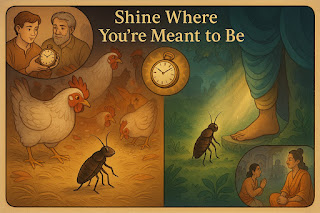The Nagas: Divine
Serpents in Hindu Mythology (Part 3).
This final article
in our three-part series on the Nagas, divine serpent deities revered in
Hinduism, builds on the foundations laid in the previous instalments.
Article 1 introduced
the Nagas’ scriptural significance in texts like the Bhagavat Puran, Mahabharat,
and Ramayan, highlighting their roles as semi-divine beings of wisdom,
protection, and fertility.
Article 2 explored
the vibrant rituals of Naag Panchami, the sacred Mannarasala Nagaraja Temple, Naga
Curses and the protective Naga Stuti.
This concluding
instalment delves into the nine principal Naga deities (Nav Nag Devtas) and
their profound connections with major Hindu deities—Krishna, Vishnu, Shiva,
Ganesh, and the Devi—illuminating their roles as guardians of cosmic and
spiritual realms, thus completing the exploration of their enduring legacy.
The Nine Major Nagas
(Nav Nag Devtas).
The Nav Nag Devtas,
nine revered Naga deities, are central to Hindu worship, particularly during
Naag Panchami. Residing in the subterranean realm of Nagaloka, these serpents
are master architects and metallurgists, wielding divine powers such as
shape-shifting and guarding subterranean treasures. Below are the nine
principal Nagas, each embodying unique attributes:
- Ananta (Shesha): The infinite, thousand-headed
serpent, serving as Vishnu’s cosmic bed, symbolizing eternity (Vishnu
Puran 1.2).
- Vasuki: The serpent king, pivotal in the
ocean’s churning and a companion of Shiva (Mahabharat, Adi Parva,
18).
- Padmanabha: A protector Naga, upholding Vishnu’s
divine order (Padma Puran).
- Kambala: Guardian of underground wealth,
revered for strength.
- Shankhapala: Protector of prosperity and
abundance.
- Dhritarashtra: Wise Naga king, embodying leadership.
- Takshaka: Fierce avenger of Raja Parikshit’s
insult, showcasing the Nagas’ dual nature (Mahabharat, Adi Parva,
40–58).
- Kaliya: Redeemed by Krishna’s dance,
symbolizing transformation (Bhagavat Puran 10.16).
- Shankhachuda: Associated with spiritual protection.
These Nav Nag Devtas
bridge the divine and material realms, their significance in worship
highlighted in yesterday’s article on Naag Panchami rituals, where devotees
offer milk and prayers to their idols.
Nagas and Their
Divine Associations.
Nagas are woven into
Hindu epics as semi-divine beings with complex relationships to major deities.
This section deepens that exploration by detailing their roles as companions,
protectors, or challenges to Krishna, Vishnu, Shiva, Ganesha, and the Devi, symbolizing
cosmic balance and spiritual power.
Krishna and Kaliya.
In the Bhagavat
Puran (10.16), Krishna subdues Kaliya, a Naga poisoning the Yamuna River,
through the Kaliya Mardan dance. Briefly noted in Article 1, this episode
underscores the Nagas’ potential for redemption, as Krishna reforms Kaliya,
restoring purity to the river and highlighting divine intervention in
maintaining ecological harmony.
Ananta and Vishnu.
Ananta (Shesha), the
thousand-headed serpent, supports Vishnu on the ocean of milk during his cosmic
slumber, embodying infinity and stability (Vishnu Puran 1.2; Padma
Puran). Introduced in Article 1, this eternal bond reflects the Nagas’
foundational role in cosmic order.
Vasuki and the
Samudra Manthan.
Vasuki’s role as the
churning rope in the Samudra Manthan, detailed in Article 1 (Mahabharat,
Adi Parva, 18), showcases his endurance and cooperation with Devas and Asuras
to yield amrita. Honoured by Vishnu and Shiva, Vasuki exemplifies the Nagas’
contribution to divine quests for immortality.
Shiva’s Serpent
Garland.
Shiva’s serpent,
often Vasuki, coiled around his neck, symbolizes mastery over primal energies
and protection (Linga Puran). This imagery complements Shiva’s yogic
nature, reinforcing the Nagas’ role as divine protectors.
Ganesh’s Serpent
Belt.
Ganesh’s serpent
belt, representing Kundalini energy, signifies contained primal power and
divine protection (Skanda Puran). This association, touched upon in
Article 1’s discussion of Kundalini, highlights the Nagas’ spiritual
significance in yogic traditions.
The Devi and the
Nagas.
In the Devi
Bhagavat Puran (Book 5), Nagas like Vasuki and Shesha revere the Devi as
Durga or Parvati during her battles against demons like Mahishasura,
recognizing her as the supreme Shakti protecting Nagaloka. The Nagas believe
that the Devi protects them and their world – Naga Loka. Manasa Devi, the
serpent goddess, commands Nagas and protects devotees from snakebites (Manasa
Mangal Kavya). Her serpent-canopied iconography and Kundalini association (Hatha
Yoga Pradipika) align with the spiritual roles of the Nagas, complementing
the ritual practices described previously.
Conclusion.
This three-part
series has traced the Nagas’ profound legacy in Hindu mythology, spirituality,
and culture. Article 1 laid the foundation with their scriptural significance
in the Vedas, Puranas, Mahabharat, and Ramayan,
portraying them as semi-divine beings of wisdom, protection, and fertility.
Article 2 celebrated their vibrant rituals during Naag Panchami, the sacred
Mannarasala Nagaraja Temple, and the protective Naga Stuti. This final article
has illuminated the Nav Nag Devtas and their divine associations with Krishna,
Vishnu, Shiva, Ganesh, and the Devi, underscoring their roles as guardians of
cosmic and earthly realms.
The Nagas’ enduring
presence, from ancient scriptures to modern worship, reflects their timeless
significance in fostering harmony between humanity, nature, and the divine.
As devotees chant
“Om Naaga Naagam Aashrayeham,” they honour the Nagas’ protective and
transformative powers, a legacy that continues to inspire reverence and
devotion.
Om Naaga Naagam
Aashrayeham!!!
I seek refuge in the
universal presence of the Nagas.









